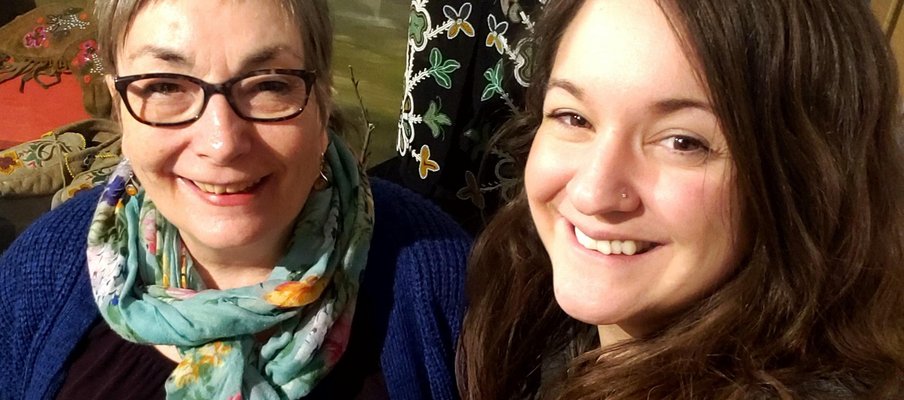Biggar Takes Step Towards Reconciliation

Related Programs

Reconciliation means the return to friendly relations and the Town of Biggar has taken its first step in that direction.
“It’s a work in progress,” says Delta Fay Cruickshank, executive director of the Biggar Museum and Art Gallery. It all began when she and the economic development officer for the Town of Biggar got together to discuss reconciliation and heard about the KAIROS Blanket Exercise. Once they received a SaskCulture grant for the project the pair split up the duties and made it happen.
"The year prior, I had been to a blanket exercise the Museum Society of Saskatchewan had put on and I thought it was a very good teaching tool,” says Cruickshank. “It was important to get as many people from the town to get involved.” Although she didn’t have an exact number of participants, she says the turnout was overwhelming and attracted high school students and seniors alike from the different backgrounds such as non-Indigenous, newcomer, First Nation and Métis.
“Eventually I want to make sure Biggar takes further steps down the path of reconciliation,” she says, adding that the KAIROS Blanket Exercise can be an emotional experience because it not only introduces the harsh realities of Indigenous history to those who never knew it, but it sparks tough conversations about race and discrimination.
After each exercise people had an opportunity to debrief and share their personal experiences, which brought some to tears. Although Cruickshank is not Indigenous, she has made it her mission to build a bridge between the Indigenous and non-indigenous communities in the area simply because it’s time.
Biggar, located 98 kilometres west of Saskatoon, has a population of around 2,000 people. It's also about 30 minutes from the Red Pheasant First Nation. Both communities were thrown into the spotlight during the Gerald Stanley murder trial. Cruickshank says the court case created an atmosphere of division, which is why reconciliation work is so important.
Her motivation stems from her personal experience. The daughter of a soldier, her family moved often, so she was constantly the new kid in school, which made her the outsider. However, it was another childhood incident that taught her about the unfairness of discrimination. Her best friend’s father was Indigenous and in the 1950s times were very different. One day, the two girls both five-years-old at the time, went to the park to play. “We got beat up really, really bad by big kids and we were called, ‘dirty Indians’,” says Cruickshank. “I learned from a very early age what it was like to be discriminated against for things you have absolutely no control over.”
Having lived in Europe and throughout Canada, Cruickshank arrived in Biggar 11 years ago and fell completely in love with it. She's working to make sure it is the best it can be. She plans to do more work in the area of reconciliation because it is needed and is thankful the journey has started.
This project received funding from SaskCulture’s Community Cultural Engagement and Planning grant.



